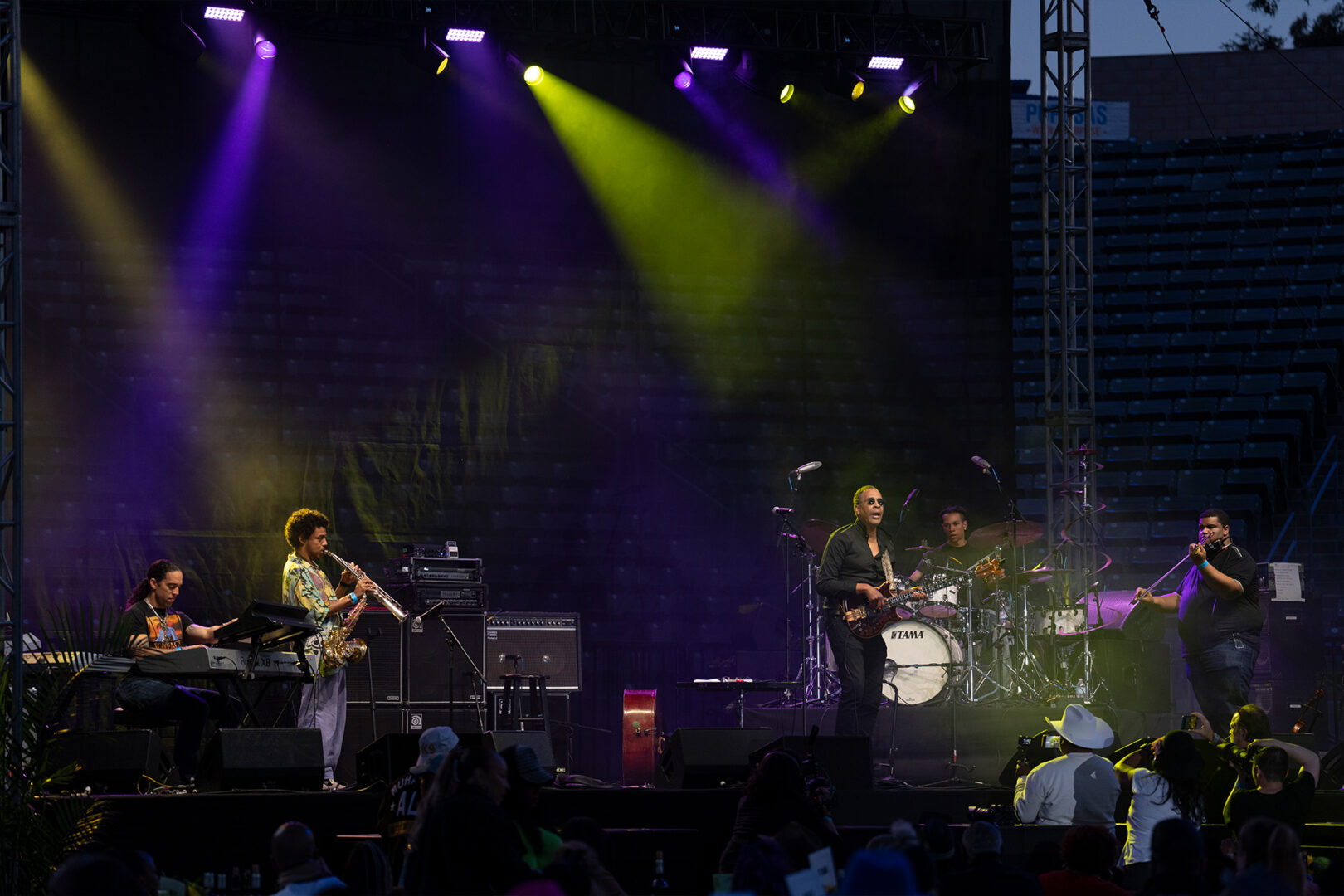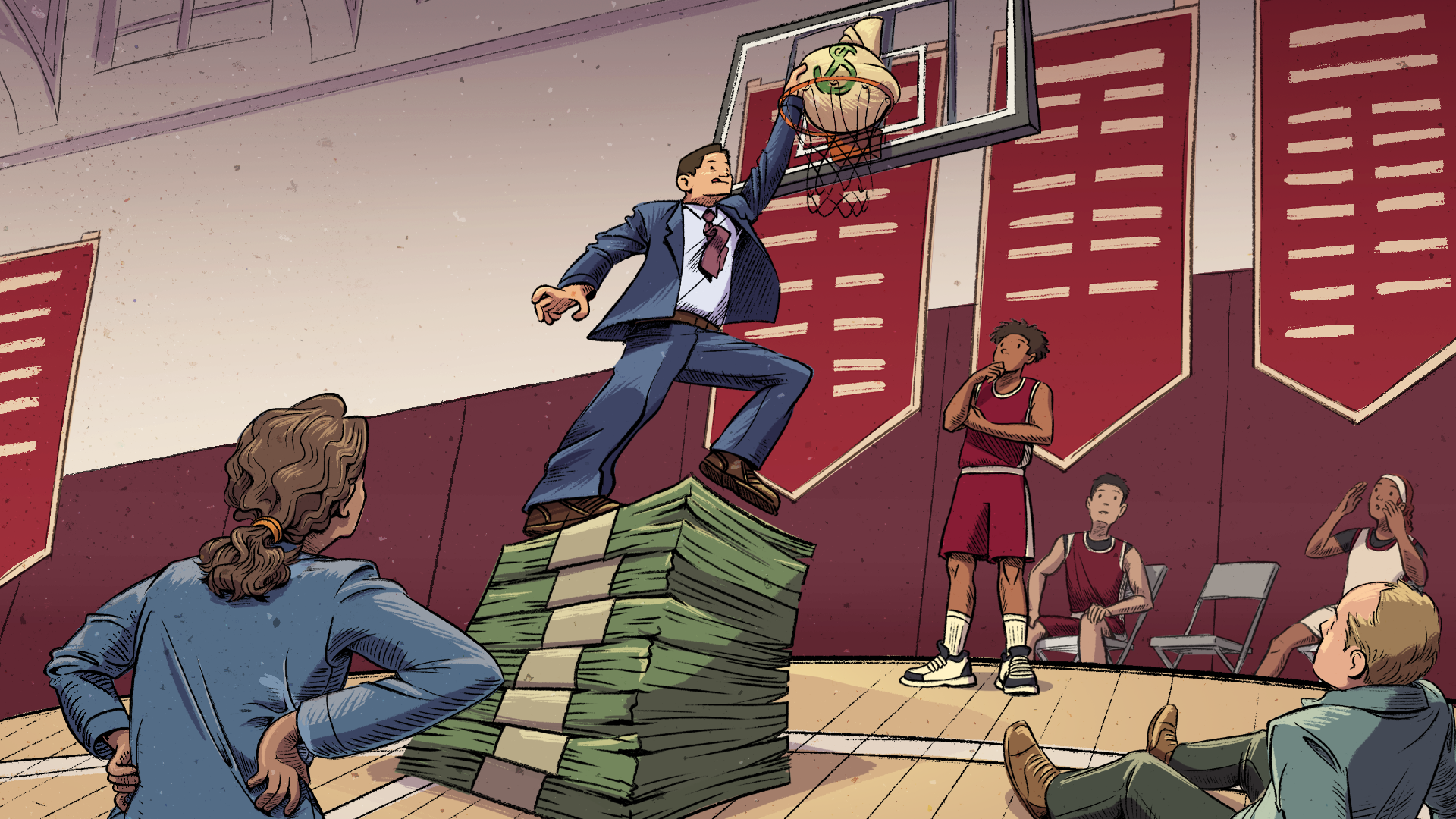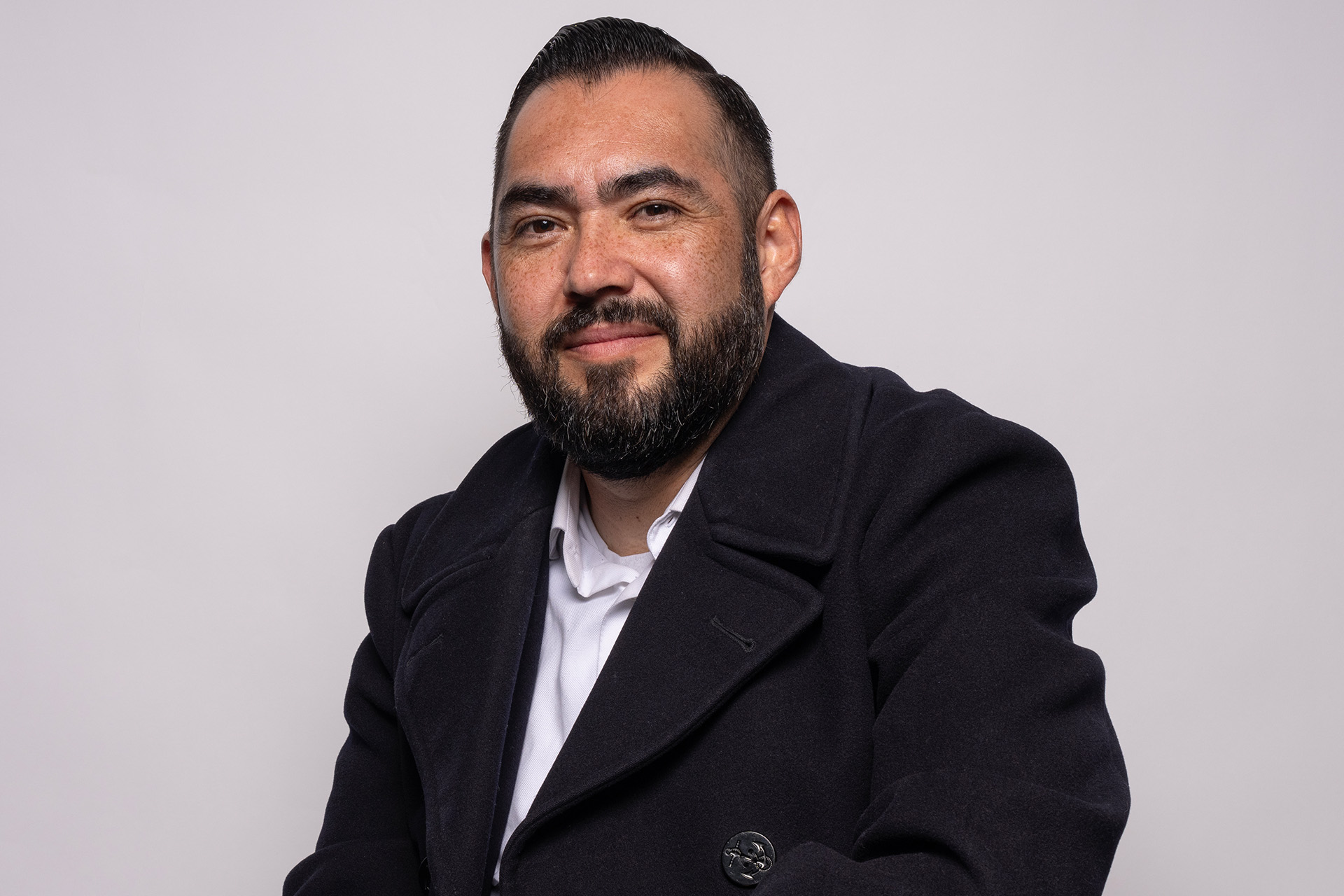Dymally Institute Expands its Footprint on Campus
by Philip Bader
The Mervyn M. Dymally African American Political and Economic Institute has had a decade-long presence on the CSUDH campus, but never a dedicated one. That will change in the next few years with the construction of a new building the university hopes will become an even greater bridge between the campus and the communities it serves.
Anthony Samad knew straight away that he wanted to give the institute a permanent footprint on campus when he became executive director in 2018. “Employees initially worked out of various offices around campus, and the institute was hardly identifiable.”
Samad and his team centralized the Institute’s location on the fourth floor of the Leo F. Cain Library, where they currently carry out its work—an ambitious program of annual events, lectures, workshops, and student leadership programs that honor the legacy of Mervyn Dymally’s public service and elevate the mission and vision of CSUDH.
The institute’s new building will offer expanded administrative space; a reading center for rare and out of print works on African American history, politics, and race; and a space where local community members can engage on social and public policy issues that affect them. It will also house a growing archive of digital materials and oral histories reflecting the history of Black leadership in California.
“To ensure that the institute thrives beyond my tenure, we wanted a space where campus and community could meet,” says Samad. He points to events in recent years that brought voices such as Angela Davis, Cornel West, and Rep. Maxine Waters to CSUDH. “We want to attract voices from outside the university. That’s what a think tank should do.”
Training a New Generation of Black Leaders
Dymally was a passionate advocate for human rights and economic development, helping to combat violence and racial oppression in Sudan, South Africa, and elsewhere on the African continent. Political equity and economic prosperity also drove his agenda for the communities of color he represented at home in California as a state senator, state assemblymember, and the state’s first Black lieutenant governor.
The institute has become an integral part of the academic culture at CSUDH and a vehicle for honoring Dymally’s leadership at home and abroad, says President Thomas A. Parham. “It’s really one of the crown jewels of the university. Mervyn Dymally was an international statesman who believed in building coalitions across demographic boundaries. He related to a global world with a global identity.”
Mervyn Dymally is a symbol of the possibility and potential for students to achieve similar things in their own lives.”
Dymally’s work in Congress and in the Pan-African community provides the inspiration and context for one of the critical functions of the institute—the Dymally Fellows program. Each year, a select group of students interested in civic and community engagement are admitted to the year-long program, which aims to equip them with the leadership skills to become agents of change in their communities, in the state, and worldwide.
Fellows travel across California, the country, and even internationally, engaging with policymakers and gaining real-world experience, all at no cost to them. That experience is something that many Fellows otherwise would not have access to, says Tajauta Ortega, program coordinator for the institute. “Young people who might never have been on a plane or traveled outside California get to see the world and gain an entirely new perspective. The impact can be enormous.”
Fellows participate each year in the International Model African Union Conference, where they work with peers from around the world to analyze and discuss critical political and social issues that affect African nations. They also travel to an African nation to witness first-hand how communities face these challenges in their daily lives.
“Dymally Fellows are learning to be international change agents, so the Model African Union Conference is completely in line with the program at large,” says Anthony Onwuegbuzia, administrative support coordinator for the institute. “Participation gives them an international perspective on policymaking and the political side of things.”
The institute also partners with the California Legislative Black Caucus to invite high school juniors and seniors to campus each year for the African American Leaders for Tomorrow conference. Participants spend a week living in student housing and attending panel discussions and workshops on how legislators shape the policies that affect their lives.
A Think Tank Rooted in Social Justice
Since its founding, the institute has preserved, uplifted, and promoted African American voices in the political and economic sphere, in the historical materials it archives for future research, and in cultural and artistic expression.
Those voices, says Samad, have been increasingly silenced or ignored. “We want to eliminate the loss of our institutional memory, not just here on campus but in the larger community. Our stories still need to be told.”
The institute has made important contributions in storytelling by providing research and funding for documentary films such as Respect My Crown: The Rise of African American Women in California Politics (2024). It also holds annual workshops aimed at enhancing the involvement of Millennials, Gen Z, and seniors in public policy discourse.

Key to its cultural programming is the Dymally International Jazz and Arts Festival, held annually since 2019. It brings together musicians from around the world to celebrate the uniquely American art from of jazz, and it also invites vendors and visual artists from local communities.
Teodross Avery, a celebrated saxophonist and assistant professor of jazz studies and commercial music at CSUDH, performs regularly at the festival. “Jazz is an art form passed down through the generations,” says Avery. “It’s a language that started more than a century ago.”
Its these kinds of conversations—political, economic, and artistic—that ground the work of the institute in the lived experience of African Americans, which has significant public policy implications. At a time when diversity, equity, and inclusion initiatives have come under attack nationwide, preserving and promoting Black voices is more important than ever, says Samad.
He notes that the institute made important contributions to the 2023-2025 State of Black Los Angeles County Report, which found that African Americans in Los Angeles are less likely than other racial groups to “enjoy good health, housing security, access to economic opportunities, quality education, and freedom from punishment and overpoliced communities.”
Meeting the challenges that confront African Americans and all communities of color at the legislative level is what defined Mervyn Dymally’s nearly six decades of public service. It is a similarly high standard that the institute has set for itself.
“Mervyn Dymally is a symbol of the possibility and potential for students to achieve similar things in their own lives,” says President Parham. “I hope the institute will continue to define social and political discourse at a moment when there is so much divisiveness in the nation.”


